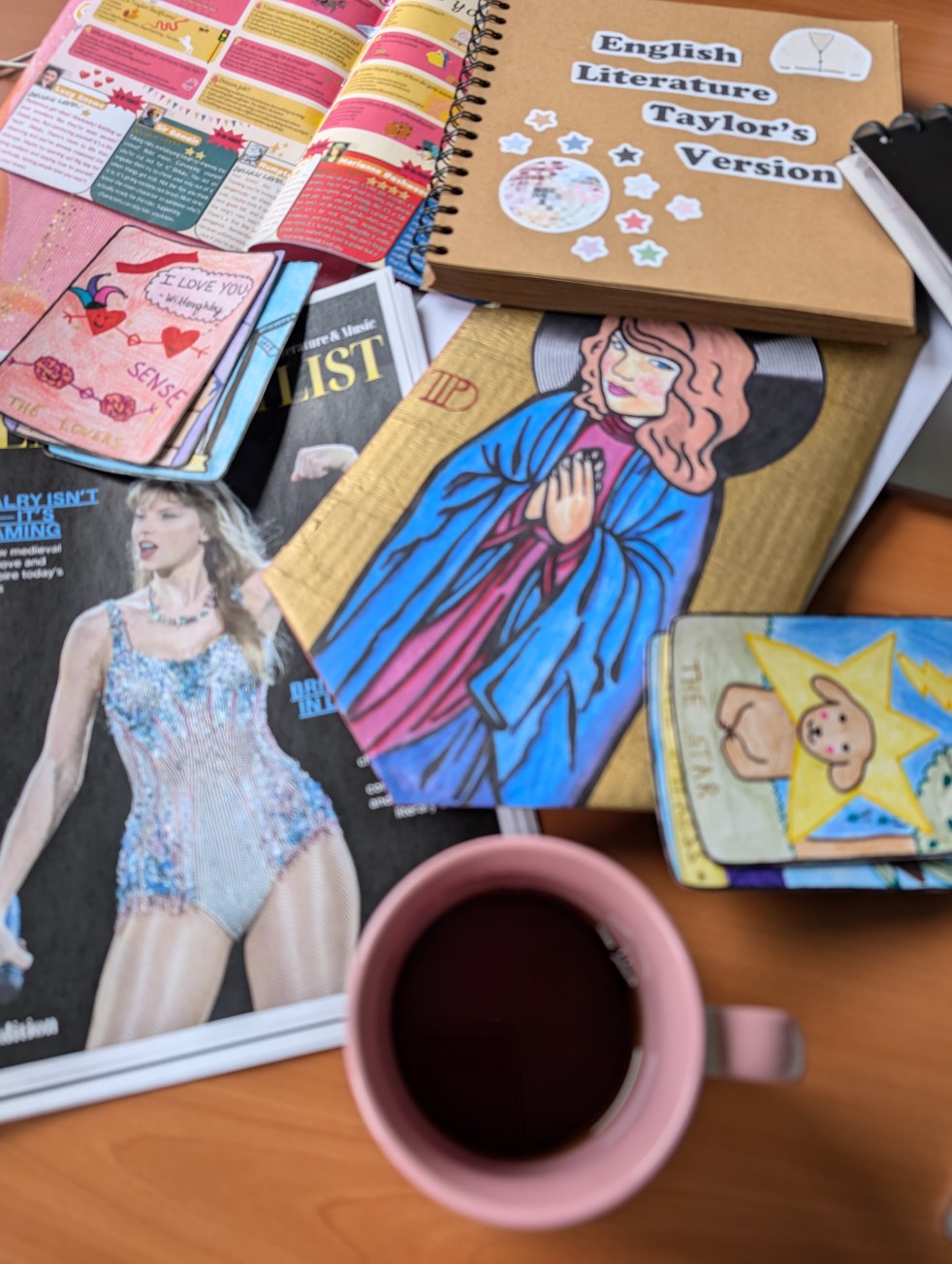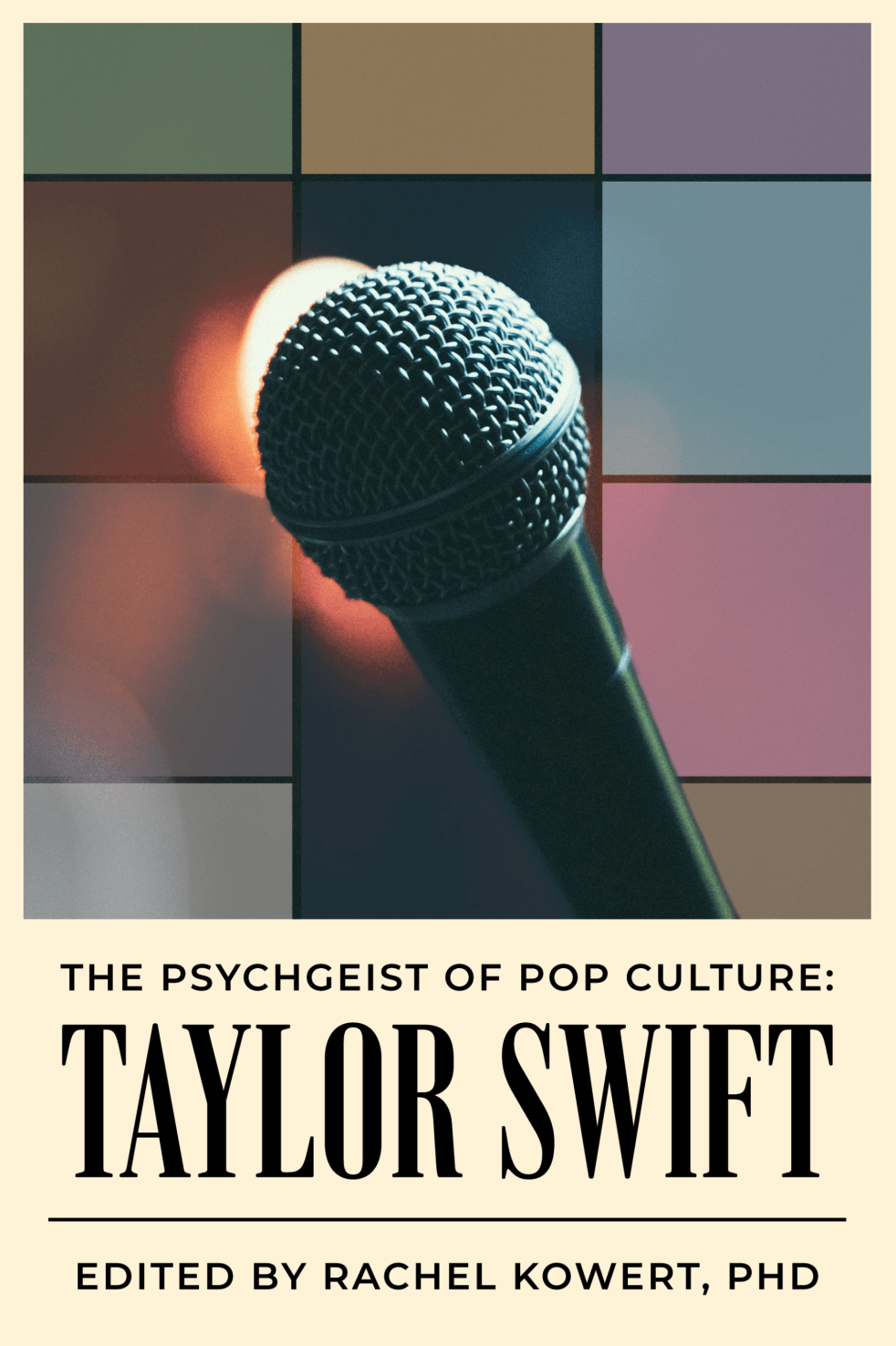Now that the glitter has settled on The Life of a Showgirl’s release, and I’ve spent enough time on Reddit fan forums and the comments section of Instagram to feel that I’ve gained both a comprehensive overview of audience reactions and a deep, visceral need to go outside and touch some grass, I wanted to… Continue reading Is it ‘Actually Romantic’ to renounce one’s feminism?
Bake It Off: the ultimate Taylor Swift baking book
My Taylor Swift inspired cookbook, BAKE IT OFF, comes out on 2 October! (Yes, in perfect time for your listening parties for The Life of A Showgirl!) I am so excited to share this with you all after working so hard on it for months and testing every recipe to perfection. It's packed with glitter,… Continue reading Bake It Off: the ultimate Taylor Swift baking book
The peak before the prison house: Swift, Wordsworth, and the Romantic child
Taylor Swift opens ‘the lakes’, a bonus track from her 2020 album folklore, with the line ‘is it romantic’, and then goes on to pun about William Wordsworth and allude to the British Romantic poets, who were known for being inspired by the Lake District. However, it’s not actually Swift’s most Romantic song — not… Continue reading The peak before the prison house: Swift, Wordsworth, and the Romantic child
Swifterature: the book. Coming 4 November
You can find countless articles online – and a few books by now, too – listing all the literary allusions in Taylor Swift’s work, many of which I've also documented on this blog. Beyond suggesting that Swift is familiar with some English literary classics, though, these lists don’t really tell us much at all. When… Continue reading Swifterature: the book. Coming 4 November
Taylor Swift: The New Romantic Poet
In this essay by high school student Anthony Daans (who kindly allowed me to give some feedback on his project), he argues for Taylor Swift as a modern Romantic poet, while also exploring some of the ways in which this persona might stand at odds with other aspects of Swift's career. Thank you so much,… Continue reading Taylor Swift: The New Romantic Poet
Creative reflections on English Literature (Taylor’s Version)
As part of their final assignment for English Literature (Taylor's Version) - my Masters course at Ghent University - students have to prepare a 'reflection report'. This can take any form, and should be inspired by one or more aspects of the ten-week course. The results are endlessly creative, inspiring, and moving. I've shared a… Continue reading Creative reflections on English Literature (Taylor’s Version)
A preview of my new book
I'm so excited to share some content from my new book, Stars Around My Scars: The Annotated Poetry of Taylor Swift, out tomorrow (28 January)! If you haven't yet ordered a copy, I'm hoping this will convince you to do so! For each of the 46 songs included in the book (you can find my… Continue reading A preview of my new book
On being, and not being, The Man: modern-day vindications of gender rights
As preparation for one of our seminars in English Literature (Taylor's Version) — in which we look at connections between writing, gender, and power, focusing on Taylor Swift's 'The Man', 'mad woman', 'Dear John', 'Hits Different', and 'the last great american dynasty' — I ask students to write a modern-day version of 'A Vindication of… Continue reading On being, and not being, The Man: modern-day vindications of gender rights
The Psychgeist of Pop Culture: Taylor Swift
Published just in time for Taylor Swift's 35th birthday, The Psychgeist of Pop Culture: Taylor Swift is a collection of thirteen essays that discuss Swift's self-fashioning, musical storytelling, and importance to pop culture in the 21st century. My own chapter, 'We won't be sleeping: insomnia and the feminist antiheroism of Taylor Swift' , explores sleeping,… Continue reading The Psychgeist of Pop Culture: Taylor Swift
The Literary Taylor Swift
Several months ago, I had the honour of being asked to write a blurb quote for The Literary Taylor Swift, a new collection of academic essays out now, published by Bloomsbury Academic and edited by Betsy Winakur Tontiplaphol and Anastasia Klimchynskaya. Before I even read the book, I knew what I was going to say… Continue reading The Literary Taylor Swift










